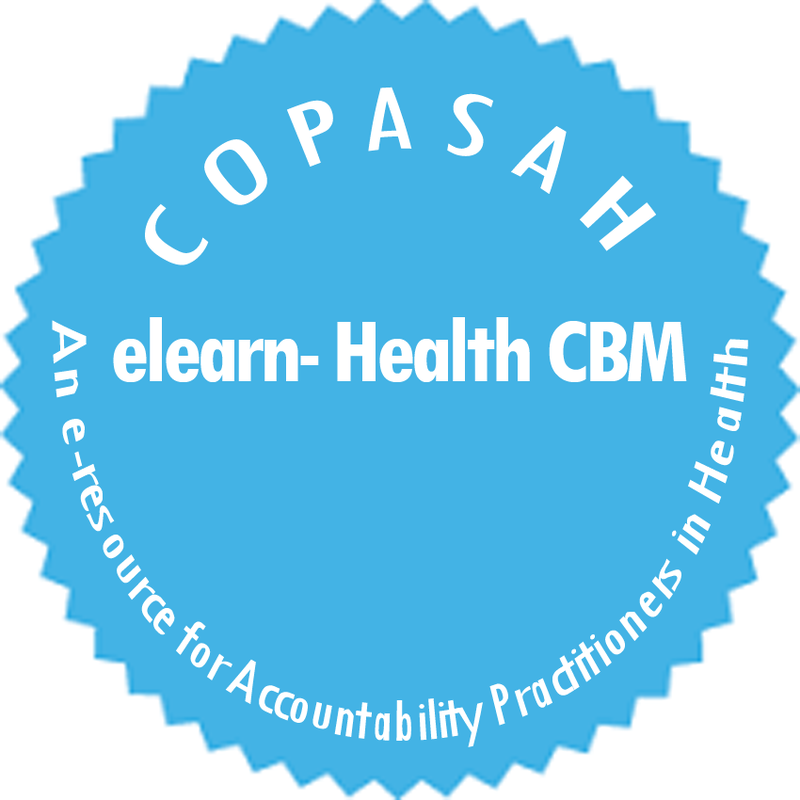
|
|
Intensifying Advocacy for the Legalization of the Right to Health in Uganda
|
MOSES TALIBITA
|
|
Uganda National Health Consumers' Organisation (UNHCO) guided by her vision(“A Uganda where the healthcare system guarantees full enjoyment of the right to health by all people) and indebted to her mission (to promote full integration and implementation of the rights based approach in Uganda's health sector through meaningful citizen-duty bearer engagement in healthcare planning and delivery)conceived an idea of advocating for the inclusion of the Right to Health in the 1995 Constitution of the Republic of Uganda as amended because the same is not expressly stated in the Constitution.
The right to health is a fundamental part of our human rights and understanding of a life of dignity. The right to enjoyment of the highest attainable standard of the physical and mental health is not a novel idea, it was articulated in the 1946 Constitution of the World health organisation(WHO), whose preamble defines Health as 'a state of complete physical , mental and social well- being and not merely the absence of disease or infirmity.' The preamble makes mention of ' the enjoyment of the highest attainable standard of health is one of the fundamental rights of every human being without distinction of race, religion, political belief, economic or social condition.' |
RESPONDING TO RIGHTS VIOLATIONS
UNHCO responded to cases of health rights violations and highlighted them for action such as the dismissal of pregnant students from university, stating that the dismissals selectively deny female students to equal opportunities for education enshrined in the Constitution of Uganda as their male counter parts are never affected, hence failing them from benefiting from favorable conditions for education, freely associating with fellow students hence casting a dark cloud on their future which is likened to double jeopardy. UNHCO's Patient Complaint forms were also distributed at project target health facilities - these formed a complementary redress mechanism for illegal violations and collect evidence for advocacy for the right to health. |
Henceforth, other international treaties have recognised or referred to the Right or to elements of it, such as the right to Medical care. The right to health is relevant to all states: every state has ratified at least one international human rights treaty recognising the right to health. Moreover, states have committed themselves to protecting this right through international declarations, domestic legislation and policies and at international forums.
Contemporaneously, increasing attention has been paid to the right to the highest attainable standard of Health, by human rights treaty monitoring bodies, WHO and Human Rights Council, which in 2002 created the mandate of Special Rapporteur on the right of everyone to the highest attainable standard of physical and mental health. The initiatives have helped clarify the nature of the right to health and how it can be achieved.
UNHCO Right to health legalisation approaches
Making legitimate the demand by citizens for the universal enjoyment of health goods and services fell in two fronts for which UNHCO mounted a protracted campaign to realise by July 2015.
The constitutional inclusion of the right to health that creates claimable health services and goods on the one part
The Legislative initiatives that legitimises patient's rights and responsibilities.
UNHCO has constructively engaged with stakeholders to advocate for legitimising the right to health in Uganda. The realisation of the right to health has been found to start with the creation of a receptive legal framework, according to the Chairperson of the legal and Parliamentary Affairs Committee of the Parliament of Uganda.
UNHCO worked with key stakeholders through coalitions as a fact-finding strategy on possibilities of gathering arguments to be compiled in affidavits to beef up the evidence for the right to health. UNHCO built partnerships with institutions including the Uganda Human Rights Commission, Uganda Law Reform Commission, and Parliament among others, and formed a Patients' Rights Bill Working Group (Task Force). The working group comprise members with expertise in Human Rights, Law, Health and interpretation of legal documents to which UNHCO benefitted in identifying health rights violations that impend the realisation of the right to health in Uganda.
The legal recognition of the right to health in Uganda has never attracted as much interest. It is beyond challenge that the Constitution does not give claims for entitlements for Health goods and services for Ugandans.
Legitimizing patient's rights and responsibilities – The Patient's Rights and Responsibilities Bill, 2015:Whereas Article 8A(1) provides that the National Objectives and Directive Principles of State Policy are principles of national interest and common good unto which Uganda shall be governed. Legalising the same requires a law making process cum Article 8A (2). Clearly, ensuring basic medical services and access to health services are legally barren.
UNHCO launched a protracted campaign for the legitimization of the Patient's right's charter. Learning from her engagements that ultimately led to the adoption of the patient's charter by the Ministry of Health, UNHCO sensitized Parliamentarians on the advantages of having a law that protects patient's rights. On the 26th of February, Hon. Milton Muwuma sought leave of parliament to draft and later table the Patient's rights and responsibilities Bill, 2015.
Parliament assigned the mover definite time within which he could present the Bill for the first reading. The law required that he obtain a certificate of financial obligation from the Ministry of Finance and economic planning that was expected by September 2015.
This Patients' Rights and Responsibilities Bill makes lawful patients' responsibilities as well, making patients take charge of their health and health workers to respect the patient's rights to treatment, privacy, referral, informed consent and information. This would promote mutual accountability, quality of care and universal health coverage.
Constitutional processes for the right to health
National consultations were conducted with the Ministry of Justice and constitutional affairs, Uganda Human Rights Commission, the Ministry of Health, the Parliament of Uganda and Civil Society Organisations.
UNHCO led civil society to submit a proposal seeking to expand article 22 of the Constitution that protects life to Article 22 A to provide for the right to health. The proposal however never appeared in the government proposals that were brought forth before the legal and Parliamentary Affairs Committee of Parliament.
The clerk to the Legal and parliamentary Affairs committee invited UNHCO to appear and present submissions on the Constitutional (Amendment) Bill No. 11 of 2015. UNHCO joined by other civil society made submissions to the committee of parliament the Right to Health proposal that read as follows:
The 1995 Constitution of the Republic of Uganda's shall read: Article 22 A (1) the state shall take reasonable measures within its available resources to achieve the progressive realisation of the right of every person to health, and to the conditions and facilities necessary to good health, and to health care services , including reproductive health care. (2) A person must not be denied emergency medical treatment. (3) In applying any right under this section, if the state claims that it does not have the resources to implement the right, it is the responsibility of the state to show that the resources are not available.”
Going forward
1. UNHCO is mobilising citizens to consistently demand for the inclusion of the right to Health through a Television advertisement which is a mimic of the President of Uganda meeting with the electorates at a health facility;
2. Making the right to health an election issue and positioning it a citizen's top priority as their go for the ballot come 2016 general elections.
Contemporaneously, increasing attention has been paid to the right to the highest attainable standard of Health, by human rights treaty monitoring bodies, WHO and Human Rights Council, which in 2002 created the mandate of Special Rapporteur on the right of everyone to the highest attainable standard of physical and mental health. The initiatives have helped clarify the nature of the right to health and how it can be achieved.
UNHCO Right to health legalisation approaches
Making legitimate the demand by citizens for the universal enjoyment of health goods and services fell in two fronts for which UNHCO mounted a protracted campaign to realise by July 2015.
The constitutional inclusion of the right to health that creates claimable health services and goods on the one part
The Legislative initiatives that legitimises patient's rights and responsibilities.
UNHCO has constructively engaged with stakeholders to advocate for legitimising the right to health in Uganda. The realisation of the right to health has been found to start with the creation of a receptive legal framework, according to the Chairperson of the legal and Parliamentary Affairs Committee of the Parliament of Uganda.
UNHCO worked with key stakeholders through coalitions as a fact-finding strategy on possibilities of gathering arguments to be compiled in affidavits to beef up the evidence for the right to health. UNHCO built partnerships with institutions including the Uganda Human Rights Commission, Uganda Law Reform Commission, and Parliament among others, and formed a Patients' Rights Bill Working Group (Task Force). The working group comprise members with expertise in Human Rights, Law, Health and interpretation of legal documents to which UNHCO benefitted in identifying health rights violations that impend the realisation of the right to health in Uganda.
The legal recognition of the right to health in Uganda has never attracted as much interest. It is beyond challenge that the Constitution does not give claims for entitlements for Health goods and services for Ugandans.
Legitimizing patient's rights and responsibilities – The Patient's Rights and Responsibilities Bill, 2015:Whereas Article 8A(1) provides that the National Objectives and Directive Principles of State Policy are principles of national interest and common good unto which Uganda shall be governed. Legalising the same requires a law making process cum Article 8A (2). Clearly, ensuring basic medical services and access to health services are legally barren.
UNHCO launched a protracted campaign for the legitimization of the Patient's right's charter. Learning from her engagements that ultimately led to the adoption of the patient's charter by the Ministry of Health, UNHCO sensitized Parliamentarians on the advantages of having a law that protects patient's rights. On the 26th of February, Hon. Milton Muwuma sought leave of parliament to draft and later table the Patient's rights and responsibilities Bill, 2015.
Parliament assigned the mover definite time within which he could present the Bill for the first reading. The law required that he obtain a certificate of financial obligation from the Ministry of Finance and economic planning that was expected by September 2015.
This Patients' Rights and Responsibilities Bill makes lawful patients' responsibilities as well, making patients take charge of their health and health workers to respect the patient's rights to treatment, privacy, referral, informed consent and information. This would promote mutual accountability, quality of care and universal health coverage.
Constitutional processes for the right to health
National consultations were conducted with the Ministry of Justice and constitutional affairs, Uganda Human Rights Commission, the Ministry of Health, the Parliament of Uganda and Civil Society Organisations.
UNHCO led civil society to submit a proposal seeking to expand article 22 of the Constitution that protects life to Article 22 A to provide for the right to health. The proposal however never appeared in the government proposals that were brought forth before the legal and Parliamentary Affairs Committee of Parliament.
The clerk to the Legal and parliamentary Affairs committee invited UNHCO to appear and present submissions on the Constitutional (Amendment) Bill No. 11 of 2015. UNHCO joined by other civil society made submissions to the committee of parliament the Right to Health proposal that read as follows:
The 1995 Constitution of the Republic of Uganda's shall read: Article 22 A (1) the state shall take reasonable measures within its available resources to achieve the progressive realisation of the right of every person to health, and to the conditions and facilities necessary to good health, and to health care services , including reproductive health care. (2) A person must not be denied emergency medical treatment. (3) In applying any right under this section, if the state claims that it does not have the resources to implement the right, it is the responsibility of the state to show that the resources are not available.”
Going forward
1. UNHCO is mobilising citizens to consistently demand for the inclusion of the right to Health through a Television advertisement which is a mimic of the President of Uganda meeting with the electorates at a health facility;
2. Making the right to health an election issue and positioning it a citizen's top priority as their go for the ballot come 2016 general elections.
ABOUT THE AUTHOR
Moses Talibit, is a Legal Officer with the UNHCO.UNHCO is a membership non-governemental organisation working in Uganda. Since its inception in 1999, UNHCO has been implementing programmes that advocate for a strong institutionalized platform that is able to articulate voices of consumers of health goods and services. UNHCO has championed the Rights Based Approach (RBA) to healthcare delivery and contributed to efforts to improve community participation and accountability. For more information on UNHCO, Pls visit: www.unhco.or.ug
Moses Talibit, is a Legal Officer with the UNHCO.UNHCO is a membership non-governemental organisation working in Uganda. Since its inception in 1999, UNHCO has been implementing programmes that advocate for a strong institutionalized platform that is able to articulate voices of consumers of health goods and services. UNHCO has championed the Rights Based Approach (RBA) to healthcare delivery and contributed to efforts to improve community participation and accountability. For more information on UNHCO, Pls visit: www.unhco.or.ug








